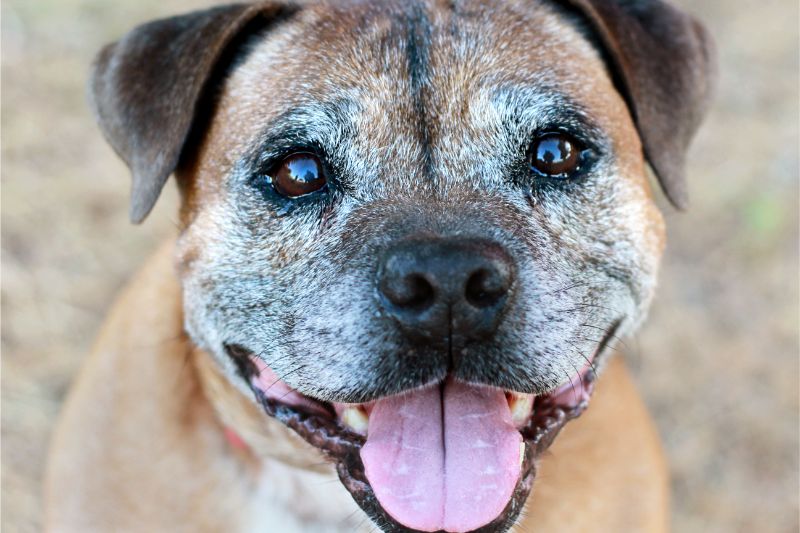Aging Gracefully: Senior Pet Care and Health

If you have pets, chances are good that you’ll be taking care of them well into their golden years. Thankfully, pets are living longer and healthier lives these days, in part due to better pet nutrition and advances in veterinary care. But if you’ve noticed a little grey around your pet’s muzzle lately, you may be wondering how to keep your senior pet healthy.
It’s important to remember that aging pets need a few adjustments to their environment to keep them feeling their best. Still, age is not a disease, and senior pets can and do live active, happy, and pain-free lives well into their late teens and twenties. Your veterinarian can help make this happen.
Read on to find out how!
When Does a Pet Become a Senior Pet?
Generally speaking, pets enter the senior life stage at age 7. This varies with species and breed, however. We can help determine if your pet is a senior, one good reason to keep up with regular annual senior wellness exams.
It Starts With A Veterinary Visit
If you’ve noticed your senior pet “slowing down,” you may be chalking it up to old age. Just like humans, aging means that animals are more at risk for certain age-related conditions that come with an aging body. But solid and regular preventive care can keep them thriving and happy.
The components of a senior wellness exam are:
- A nose to tail physical exam
- Discussion with you about what changes you’re seeing at home
- Comparing a baseline of health from previous exams to determine any changes
- Adjusting lifestyle to account for any age-related changes, like weight gain
- Using screening tests and other diagnostics to look closely at your pet’s health
- A cognition and behavioral assessment
- A dental evaluation
Early Detection of Disease
The screening tests we recommend for senior pets can give us invaluable information about senior pet health. Early detection is important because we can often catch small problems before they become full-blown disease. Some of the age-related conditions we can often detect with screening tests include:
- Diabetes
- Cancer
- Liver disease
- Kidney disease
- Heart disease
- Hypothyroidism
- Hyperthyroidism
- Cataracts
- Dental disease
- Metabolic diseases
- Arthritis and joint disease
Golden Years Means Vigilance
When you have an aging pet, paying attention to their daily behavior can give you valuable clues to their health. Pay attention to your senior pet’s behavior and activity level to know if they need your help. Call us right away if you notice:
- Changes in weight (especially weight loss)
- Difficulty getting up, moving around, or getting into the car
- Increased urination
- Increased thirst
- New lumps, bumps, or swelling
- Cloudy eyes
- Persistent cough
- Foul mouth odor
- Hiding more than usual
- Increased vocalization
- House soiling
- Difficulty breathing or panting while at rest
- Increased sensitivity to noise, or increased anxiety or confusion
- Bouts of weakness
Tender Loving Care For Your Senior Pet
Once your senior pet’s urgent health concerns have been addressed, you and your veterinarian can work on a supportive care plan. With minor adjustments at home, you can greatly improve your senior pet’s quality of life.
- Foodie. Most senior pets will benefit from a diet specifically formulated for seniors. Your veterinarian or veterinary nutritionist can recommend a diet that will support your pet’s changing health needs. Some pets can also gain health benefits from supplements such as fish oil and glucosamine.
- Move more. Senior pets need daily exercise to maintain muscle tone and a healthy weight, aid their digestion and keep them mentally fit. If your pet has arthritis, ask us about physical therapy, laser therapy, and massage to keep them active and comfortable. Keep up with a sensible and regular exercise plan for your senior and watch them thrive.
- Environmental tweaks. Your senior pet is more sensitive to temperature, so when it’s cold, give them a nice warm bed inside to stay cozy in. if it’s hot out, let them relax in the air conditioning and make sure they always have access to shade and fresh water. Limit the need for negotiating stairs by moving all their essentials (food, water, litter box) to one level. Invest in a ramp for getting into and out of the car. Keep nails trimmed, and place non-slip mats or carpets on slippery surfaces.
- Love, love, love. As your pet ages, she might be prone to behavioral changes. A stable routine of walks, feeding, and bathroom breaks will help support her. Spending quality time petting, talking to, and grooming your senior pet will keep her healthy and happy. Senior pets need mental stimulation as much as young pets in order to avoid boredom. Engage with her often, teach her a new trick, take her on an outing, or give her an extra grooming session. Your senior pet will appreciate the extra attention, and so will you!
The team at East Sacramento Veterinary Center is honored to be your partner in compassionate senior pet health. Please call us if you have any questions or concerns.
